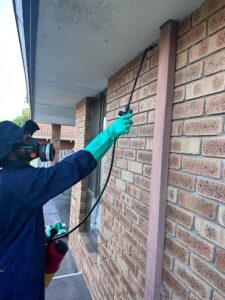Work and study support improves young people’s mental health
New first-of-its-kind research released today from headspace National Youth Mental Health Foundation has revealed that while families are concerned about the impact of work and study stress on their young people, tailored work and study support can actually enhance mental health.
headspace’s recent National Family Mental Health Survey found that stress from work or studying was in the top five perceived negative influences on young people’s mental health and wellbeing, with one in five (21%) family members concerned.
However, new evidence* shows that young people receiving tailored work or study support alongside mental health care experience even greater improvement in their mental health and wellbeing than those who receive standard care.
This March, for headspace’s annual Work and Study Month, the national youth mental health organisation is highlighting the benefits of work and study and how, for young people with mental health challenges, tailored support can improve resilience, build life skills and help them feel confident and connected.
Head of headspace’s Work and Study program, Carolyn Watts, says the impacts of mental health challenges can be a barrier to young people achieving their job and education goals.
“We know that for young people, mental health challenges in adolescence and young adulthood can impact their preparedness to enter the workforce or higher education. There are many reasons why someone might not be engaged with the worlds of work or study, such as feeling inexperienced or unprepared to enter the workforce or go to university or TAFE, past negative experiences or having caring responsibilities.
“Often, experiencing mental health challenges can lead to young people struggling to keep up with study or secure, and keep, a stable job. The longer not working or studying goes on, the harder it is to get into it. In fact, our most recent National Youth Mental Health Survey found that only half (54%) of young Australians feel confident in applying for a job.
“On the flip side, our research shows that receiving work or study support can have a hugely positive impact on mental health and wellbeing, helping young people feel a sense of purpose and learn new skills, build confidence and self-esteem, and provide those crucial social and support networks. It can also help with feelings of stress and overwhelm that young people often feel, particularly around crucial moments such as exam time – and families are often the ones who see the impact of this stress the most.”
Ash Wyllie, 20 years old from Brisbane, is one of the thousands of young people in Australia who’ve reported improved mental health after engaging with headspace Work and Study.
“Before connecting with the headspace Work and Study program, I sometimes lacked confidence in my ability to job search and find the right study options for me,” Ash said.
“At headspace, I could ask questions about work and study, figure out what my goals are and start to actually achieve those goals. It was hugely beneficial, and helped me feel more in control of my life.
“I built a great rapport with my vocational specialist, who created a safe space for me to talk about my future goals.”
In-person work and study support is free and available for 12-25 year-olds at 50 headspace centres nationally. It integrates general mental health support with tailored career advice and helps young people to enrol in study, write resumes and prepare for interviews.
One-on-one work and study support is also available online for 15-25 year-olds, and the headspace Career Mentoring initiative pairs young people aged 18-25 with volunteer professionals based on their career interests and goals, to provide advice and guidance. More information about the Work and Study program can be found on the headspace website, www.headspace.org.au/services/work-and-study-support/.
General support for young people aged 12 to 25 who are struggling with their mental health is also available via phone and online counselling service eheadspace seven days a week between 9am–1am (AEST). The number is 1800 650 890.
If you’re looking for someone to talk to immediately, Lifeline (13 11 14), Kids Helpline (1800 55 1800), and 1800RESPECT (1800 737 732) are available to talk 24/7.
-ENDS-
Key Facts:
*Notes to Editor: Study on tailored work and study support – key findings
A recent study of 2,128 young people aged 12-25 compared the mental health outcomes of those participating in headspace’s Work and Study program with those receiving standard mental health care from their local headspace centre.
• The majority of young people who received mental health care saw an improvement. But those who also received work and study support were up to a third (22-36%) more likely to achieve significantly improved mental wellbeing.
• 81% of the work and study cohort experienced an improvement on at least one of the three mental health measures – psychological distress, quality of life and psychosocial functioning (compared to 75% of those receiving standard care).
• This represents a 22% to 36% higher likelihood of achieving significant improvement on any mental health outcome from receiving work and study support compared to standard mental health services.
• The most significant improvement was seen on quality of life and psychosocial functioning. Psychological distress improved at the same rate for both cohorts.
• Those who were not engaged in study or work and looking for work, and males aged 15-25, saw the biggest improvements in mental wellbeing.
•Almost two-thirds of young people (65%) who participated in the study and received work and study support either secured a job or began studying, while an additional 8% had positive work or study outcomes recorded.
• For Aboriginal or Torres Strait Islander young people, those who went through the work and study program were at least 47-64% more likely to significantly improve on at least one mental health outcome measure, compared than those who received standard care.






